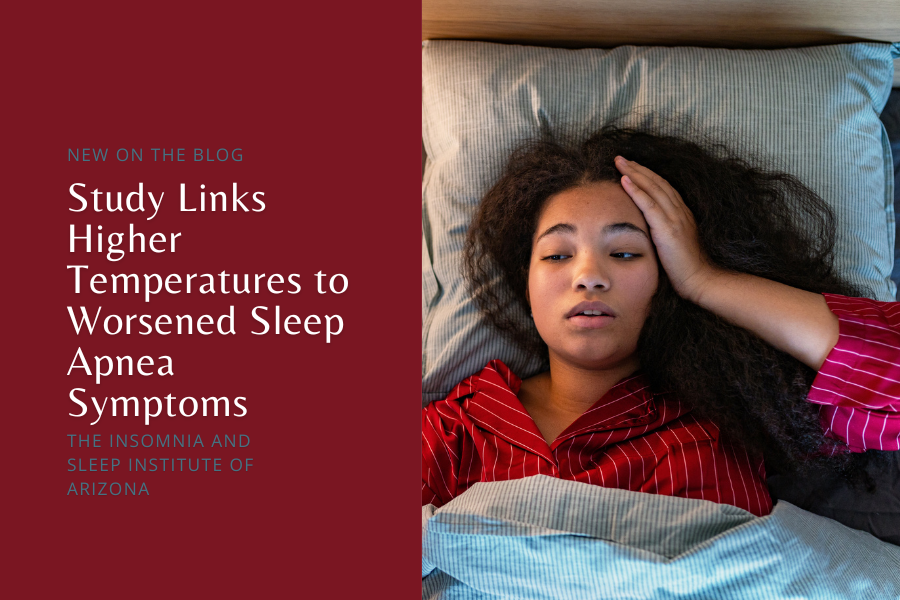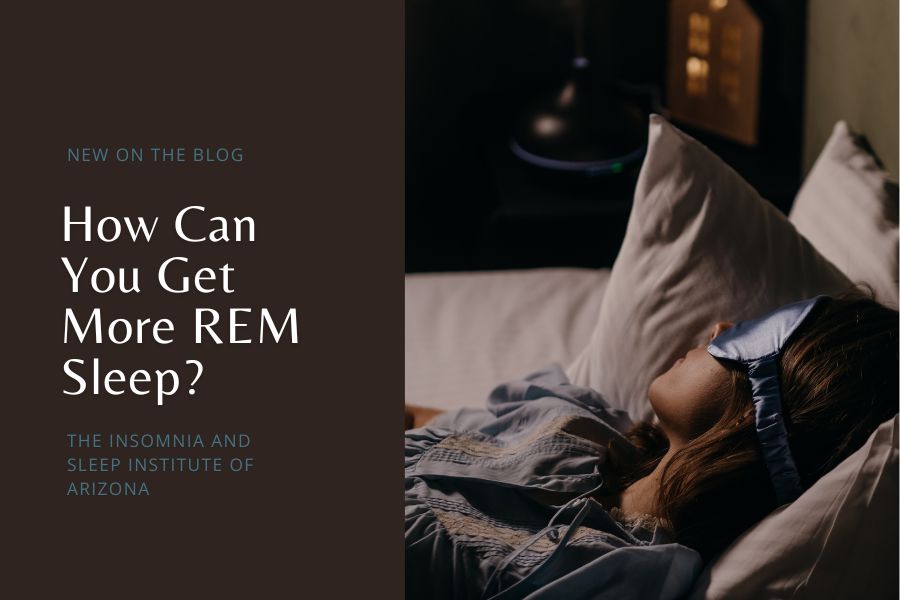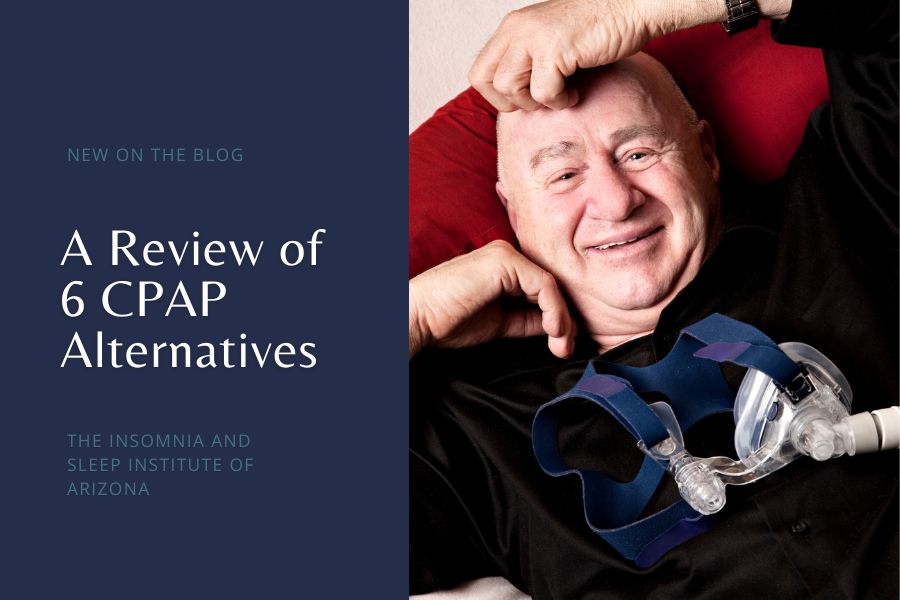Experts agree that sleep is essential for good health. Yet millions of people worldwide struggle to get enough of it. According to the Centers for Disease Control and Prevention (CDC) in the United States, one in three adults doesn’t get the recommended seven or more hours of sleep per night.
This sleep deprivation is viewed as an inconvenience but it can lead to serious, negative health outcomes. Research consistently shows that poor sleep quality and duration are linked to a host of chronic health conditions–some of which can have life-altering effects.
What Are the Signs That Poor Sleep Is Affecting Your Health?
Sleep deprivation can have serious consequences for your physical and mental health. But how can you tell if your sleep habits are affecting you?
1. Constant Fatigue
Waking up tired even after a full night’s sleep is often a sign that your sleep quality is poor. For example, perhaps the sleep you’re getting is not restorative because it’s too shallow. Deep sleep and REM stages are important for rejuvenating the body and mind.
Without them, you wake up feeling sluggish. Fatigue that persists throughout the day is a red flag. It’s your body’s way of saying it needs better sleep, not just more sleep.
2. Mood Swings and Irritability
Poor sleep is frequently linked to mood disturbances. Sleep and mood have a relationship. When you don’t get enough sleep, your brain’s ability to regulate emotions takes a hit. This can cause mood swings, anxiety, and even depression. In fact, there’s a finding that people who suffer from chronic sleep deprivation are also more likely to develop mood disorders.
3. Difficulty Concentrating and Memory Problems
Struggling to stay focused at work is also a potential sign of sleep issues. Sleep is necessary for cognitive functions like concentration, problem-solving and memory. During sleep, your brain processes and stores information from the day.
So, without sufficient sleep, this process is disrupted. Concentrating, remembering important details, and making decisions may also become harder. Eventually, this can impact productivity and overall quality of life.
4. Increased Appetite and Weight Gain
Poor sleep can mess with your hormones, particularly those that control hunger. When you’re sleep-deprived, levels of ghrelin (the hunger hormone) increase, while levels of leptin (the hormone that signals fullness) decrease.
This imbalance can lead to overeating and weight gain. Plus, when you’re tired, you’re more likely to crave high-calorie, sugary foods for a quick energy boost.
5. Weakened Immune System
Your immune system might be compromised due to poor sleep. Sleep helps maintain a healthy immune system. During sleep, your body produces cytokines — proteins that help fight off infections and inflammation.
When you don’t get enough sleep, your body produces fewer cytokines. This makes you more susceptible to illnesses like the common cold or flu. Long-term sleep deprivation can also lead to chronic inflammation. Chronic inflammation is linked to health problems, including heart disease and diabetes.
6. Skin Problems
Poor sleep can also take a toll on your appearance. When you sleep, your body goes into repair mode, healing damage from the day and producing collagen.
Lack of sleep disrupts this process and leads to skin issues like acne, wrinkles, and dark circles. Over time, chronic sleep deprivation can worsen these problems. It may also accelerate aging, making you appear older than you are.
What Are the 6 Most Common Health Conditions Linked to Poor Sleep?
Sleep is a cornerstone of good health. But when sleep is disrupted or inadequate, it can set off a chain reaction of health issues. The impact of poor sleep extends beyond feeling tired. It can be a driving force behind several serious health conditions. The six most common health conditions linked to poor sleep are:
1. Cardiovascular Disease
Cardiovascular disease, including heart disease, high blood pressure, and stroke, is strongly linked to poor sleep. Studies show that individuals who consistently get less than six hours of sleep per night have a significantly higher risk of developing cardiovascular problems.
When sleeping, the heart and blood vessels repair themselves. During deep sleep, your heart rate and blood pressure drop. Reducing the strain on your cardiovascular system.
However, poor sleep stops this restorative process. Over time, this can lead to increased blood pressure, inflammation, and a greater risk of atherosclerosis (hardening of the arteries). This connection is so strong that sleep deprivation is considered a risk factor for heart disease, on par with smoking and poor diet.
2. Diabetes and Obesity
Lack of sleep can have a profound impact on your health, especially when it comes to diabetes and obesity. Sleep deprivation has been shown to interfere with insulin sensitivity, increasing the risk of type 2 diabetes by impairing the body’s ability to regulate blood sugar. Studies reveal that even partial sleep deprivation can lead to glucose intolerance, a precursor to diabetes.
At the same time, poor sleep disrupts the balance of hunger hormones like ghrelin and leptin, leading to overeating and cravings for high-calorie foods. This hormonal imbalance, combined with a lack of energy for exercise, creates a vicious cycle, contributing to obesity. Research shows that people who sleep less than seven hours a night are more likely to develop both obesity and type 2 diabetes, emphasizing the importance of good sleep for overall health.
3. Depression and Anxiety
Unfortunately, poor sleep makes mental health conditions like depression and anxiety worse. Poor sleep can contribute to the development of mental health disorders, and these disorders can also disrupt sleep. For instance, individuals with insomnia are more likely to develop depression than those who sleep well.
During sleep, the brain processes emotional experiences and strengthens the neural pathways involved in mood regulation. Lack of sleep disrupts this process. It can increase emotional reactivity, irritability, and a higher risk of developing depression and anxiety.
4. Cognitive Decline and Dementia
Poor sleep is also linked to cognitive decline and an increased risk of developing dementia, including Alzheimer’s disease. Sleep is important for brain health. During sleep (particularly during the deep sleep stages) the brain clears out toxins that accumulate during the day, including beta-amyloid, a protein associated with Alzheimer’s disease.
When sleep is disrupted or insufficient, this clearance process is impaired, leading to the build-up of these harmful proteins. Over time, this can contribute to cognitive decline. Studies have found that people who consistently get poor sleep are at a higher risk of developing dementia, with one study showing that getting less than six hours of sleep per night in midlife is associated with a 30% increased risk of dementia later in life.
5. Digestive Problems
Poor sleep can negatively affect digestion and increase the risk of gastrointestinal conditions like acid reflux (GERD) and irritable bowel syndrome (IBS). Sleep deprivation alters gut microbiome composition, weakens digestion, and can exacerbate symptoms of these conditions. A lack of quality sleep may also disrupt the hormonal balance that regulates appetite and digestion.
6. Chronic Pain
Lack of sleep is connected to chronic pain conditions such as fibromyalgia and arthritis. Poor sleep lowers your pain threshold, making you more sensitive to discomfort. Over time, insufficient sleep can lead to a cycle of pain and sleeplessness, where pain worsens due to a lack of rest, and the inability to sleep exacerbates pain perception.
Why Choose The Insomnia and Sleep Institute of Arizona for Your Sleep Care?
You deserve the best sleep treatment. That exactly what Insomnia and Sleep Institute of Arizona offers. We have a team of board-certified sleep specialists provides a full spectrum of care. We manage common sleep disorders like insomnia and sleep apnea.
We also address more complex conditions with advanced therapies such as Inspire implants and other CPAP alternatives. Our commitment to using the latest research and technology guarantees top-tier care. Your well-being is always our priority.
We focus on a holistic, patient-centered approach, addressing the symptoms and underlying causes of your sleep problems. We’re dedicated to enhancing your sleep quality and overall health with cutting-edge diagnostic tools and customized treatment plans. Message us.
References
Lack of Sleep in Middle Age May Increase Dementia Risk. (2024, June 17). NIH News in Health. https://newsinhealth.nih.gov/2021/06/lack-sleep-middle-age-may-increase-dementia-risk
Sleep and the risk of dementia. (2023, December). Alzheimer’s Society. https://www.alzheimers.org.uk/about-dementia/managing-the-risk-of-dementia/possible-risks-of-dementia/sleep
Liu, Y., Wheaton, A. G., Chapman, D. P., Cunningham, T. J., Lu, H., & Croft, J. B. (2016). Prevalence of Healthy Sleep Duration among Adults — United States, 2014. MMWR Morbidity and Mortality Weekly Report, 65(6), 137–141. https://doi.org/10.15585/mmwr.mm6506a1
Iyegha, I. D., Chieh, A. Y., Bryant, B. M., & Li, L. (2019). Associations between poor sleep and glucose intolerance in prediabetes. Psychoneuroendocrinology, 110, 104444–104444. https://doi.org/10.1016/j.psyneuen.2019.104444
Colten, H. R., Altevogt, B. M., & US), M. (2024). Extent and Health Consequences of Chronic Sleep Loss and Sleep Disorders. Nih.gov; National Academies Press (US). https://www.ncbi.nlm.nih.gov/books/NBK19961/
CDC. (2024). About Sleep and Your Heart Health. Heart Disease. https://www.cdc.gov/heart-disease/about/sleep-and-heart-health.html
Sleeping Less Than Six Hours a Night May Increase Cardiovascular Risk – American College of Cardiology. (2019). American College of Cardiology. https://www.acc.org/About-ACC/Press-Releases/2019/01/14/13/57/Sleeping-Less-Than-Six-Hours-a-Night-May-Increase-Cardiovascular-Risk
Diana Aline Nôga, Elisa, André Pekkola Pacheco, Tan, X., Cedernaes, J., Egmond, van, Xue, P., & Benedict, C. (2024). Habitual Short Sleep Duration, Diet, and Development of Type 2 Diabetes in Adults. JAMA Network Open, 7(3), e241147–e241147. https://doi.org/10.1001/jamanetworkopen.2024.1147








